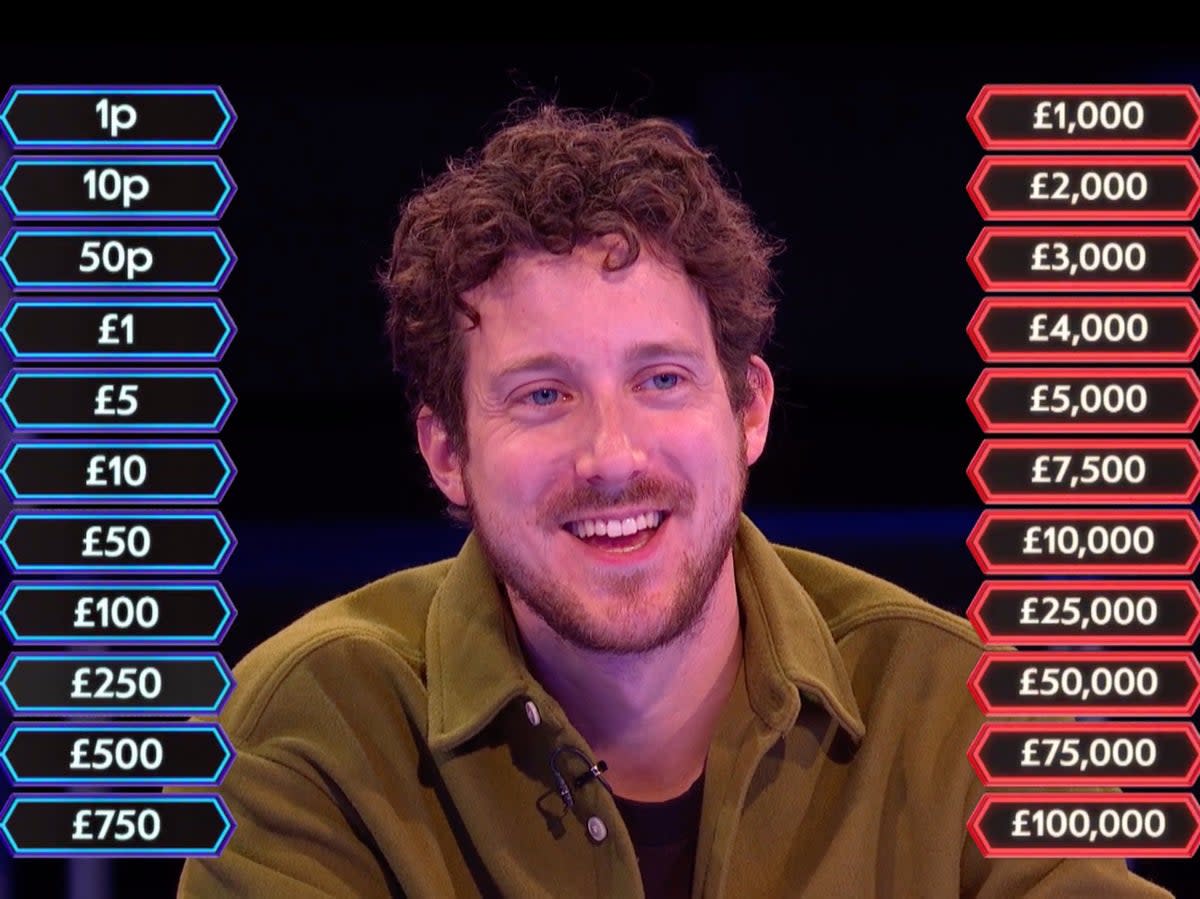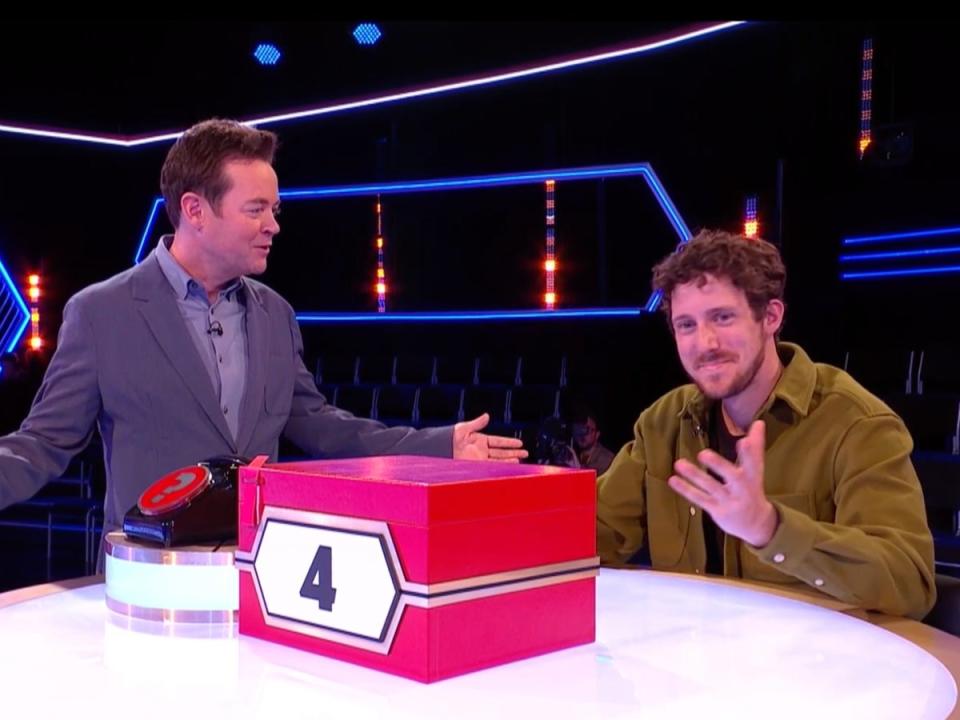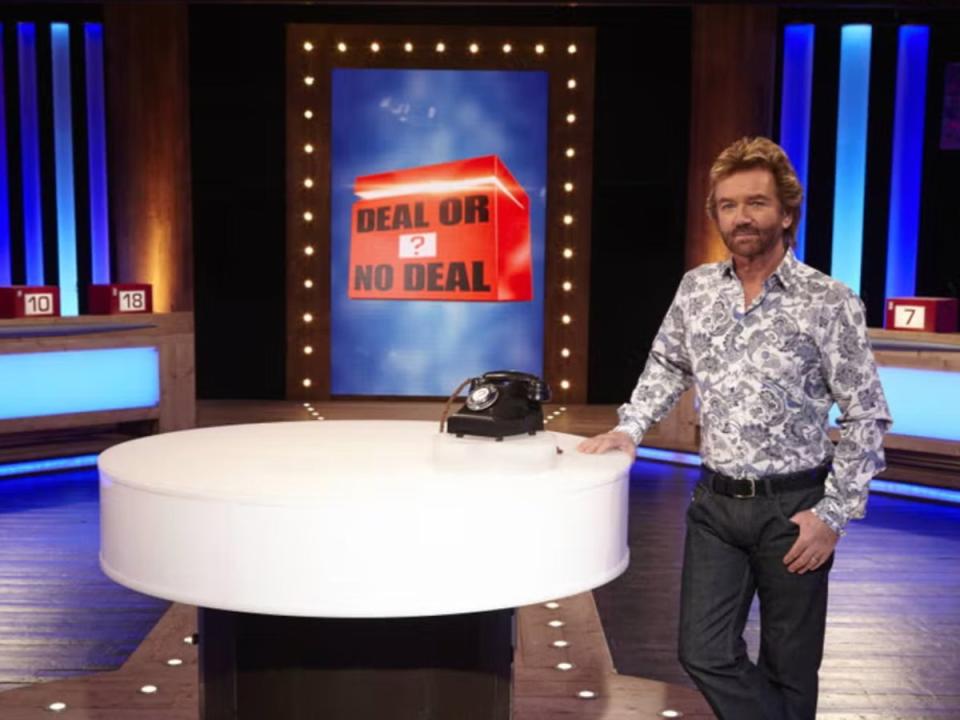What it’s like to play Deal or No Deal as ITV reboots Channel 4 game show

It’s an oddly cold August afternoon and I’m sitting in a TV studio feeling the heat. In front of me lie 22 boxes, a screen filled with a multitude of prices, ranging from 1p to £100,000, and a telephone. “Looking at your board, I think the banker has to be worried,” host Stephen Mulhern tells me as we mull over the tumultuous events of the last 10 minutes. I could only be playing the ultimate game of chance, Deal or No Deal.
Earlier this year, game-show enthusiasts were ecstatic to discover that ITV planned to reboot the immensely watchable Channel 4 series that closed its last box seven years ago. More than 11,000 people applied, with a fresh crop of contestants selected to duke it out with the mysterious banker in the hopes of winning a jackpot prize.
To this day, Deal or No Deal’s logline remains indelibly simple – “It’s a game with no questions, only one” – and perhaps this is why the show has enduring appeal. Since debuting in the Netherlands in 2000, it has been broadcast in 83 different countries. No general knowledge is required – just a willingness to have your mettle tested by an unseen figure who makes offers based on the prices you eliminate throughout rounds. Get rid of the lower prices on the board and the offers go up, but take out the big hitters and you risk leaving with enough to buy your dinner – or a few consolatory drinks – on the way home. Over the course of its 3,000 episodes on Channel 4, nine people won the jackpot prize of £250,000, while 51 people went home with a single penny. Singer Olly Murs won a tenner two years before coming second on The X Factor.
I’m in Manchester to sample the show’s return alongside the new face of Deal or No Deal. Gone is Noel Edmonds, the flowery-shirted host who, six years after Noel’s House Party ended on BBC One, won a dedicated fanbase as the cultish leader of the show’s jackpot-hunting contestants from 2005 to 2016. In his place is ITV regular Mulhern, who tells me he’s acutely aware of the shoes he has to fill.
“It’s really hard to take it off somebody like Noel Edmonds, who was the master,” Mulhern says. “He sent me a lovely message – he said, ‘Look, you’re gonna have an amazing time, you’re the perfect choice for it.’ To hear that from him… Noel’s House Party is still to this day one of the best Saturday night shows of all time.”
The £250,000 jackpot might have been reduced to £100,000 (“Money is hard at the moment,” Mulhern says), but the format is unchanged. This was crucial for the presenter, who says it’s such a strong idea that it “would take a lot to mess it up”. Fortunately, they haven’t: from the moment my gameplay begins, it feels as if I’ve been transported back in time to my university living room where I’d put off relentless amounts of coursework to watch Deal or No Deal with my housemates – only now, I’m 12 years older and on the opposite side of the screen.
For those who don’t know, you pick your own box number out of a sack ahead of the show. As I rummage through the contents with my eyes closed, I’m asked what my lucky number is. “Four,” I tell Mulhern who can’t hide his excitement when I draw a ball with the number “4” emblazoned on it. “That’s the first time that’s happened!” he exclaims. Settling into the seat I’ve seen so many people adorn over the years, I’m ready. “Let’s play... Deal or No Deal,” Mulhern says as I stare down the prize board.

Contestants on Deal or No Deal would often be grilled on their process – on how they decide which numbered boxes to open first. Let me tell you: when you’re asked to pick and everybody’s waiting on you to make a selection, any tactic you might have flies out the window. The rising intensity of the studio lights uncomfortably matches the enhancement of your powerlessness – and let’s not forget I’m not even playing for real money. If you’re in any doubt this is a game of chance going into the show, they’re dispelled the moment after you start playing. “They do say it’s a weird sensation sitting in the hot seat facing the board and all the boxes,” Mulhern says, noticing my awe-struck wonder.
As I’m playing a truncated version of the game, I’m asked to open eight boxes during round one. In normal game play, contestants open five. But there’s no denying I have a strong opener, taking out six – six! – blues. “If this was real play, this would be a fantastic opening round!” Mulhern says, telling me that producers in his earpiece are in disbelief. Frustratingly, though, what goes up must come down, and I wipe out two fairly high reds – £25,000 and £50,000 – which will no doubt make things a bit easier for the banker. The phone rings.

Mulhern answers and I’m amused to hear a voice on the other end. Not that I didn’t think there would be – it’s just an odd sensation knowing this anonymous person is watching these games unfold from somewhere within the building. In fact, Mulhern – who was given the choice to meet the banker but decided against it – says there’s a rumour the faceless figure shadily frequents the hotel bar where the contestants gather after recording is done. His hope, Mulhern is told, is to ascertain something to hold against them during gameplay.
Expectedly, the banker is holding something against me; he warns me of the penny, which is still in circulation and is the amount he believes to be in my “lucky” box. “So, he’s offering for your box – and for you to leave the game – £4,400.” It’s this moment when players need to rule with their head, not their heart and, ultimately, put their money where their mouth is: do they truly believe a high amount is in their box? While players may want to leave with more money than they’re currently being offered, one wrong box in the next round will see thousands shorn off the next amount the banker offers.
But I can save caution for another day – I’m here for the experience. “I’m ready for the question,” I tell Mulhern, who utters those immortal words: “£4,400 – deal or no deal?”
“No deal.”
I receive a smattering of applause and cheers from those in the room, which would no doubt be rapturous should I be an actual contestant playing for real money. That concludes my experience for today as we fast track the game to find out what’s in my box. The seal is removed; the lid opened… £3,000.
Mulhern is hopeful the reboot will become a success and lead to future series. It’s a big time for the renaissance of old hits: Mulhern himself presents game show classic Catchphrase, Graham Norton is set to host a new version of Wheel of Fortune and, last month, reality TV titan Big Brother was rebooted.
“I think these are shows that people just trust ‘cause they feel comfortable with them, and it just shows it’s hard to come up with a real format,” Mulhern opines. “To be honest, I don’t know why they rested Deal or No Deal – but it’s been long enough.”

And with that, I get a two-hour train back to London safe in the knowledge that the game of chance is in risk-free hands. If only the £3,000 prize was as real as my empty wallet.
The new series of ‘Deal or No Deal’ starts on 20 November at 4pm on ITV1, ITVX and STV.


